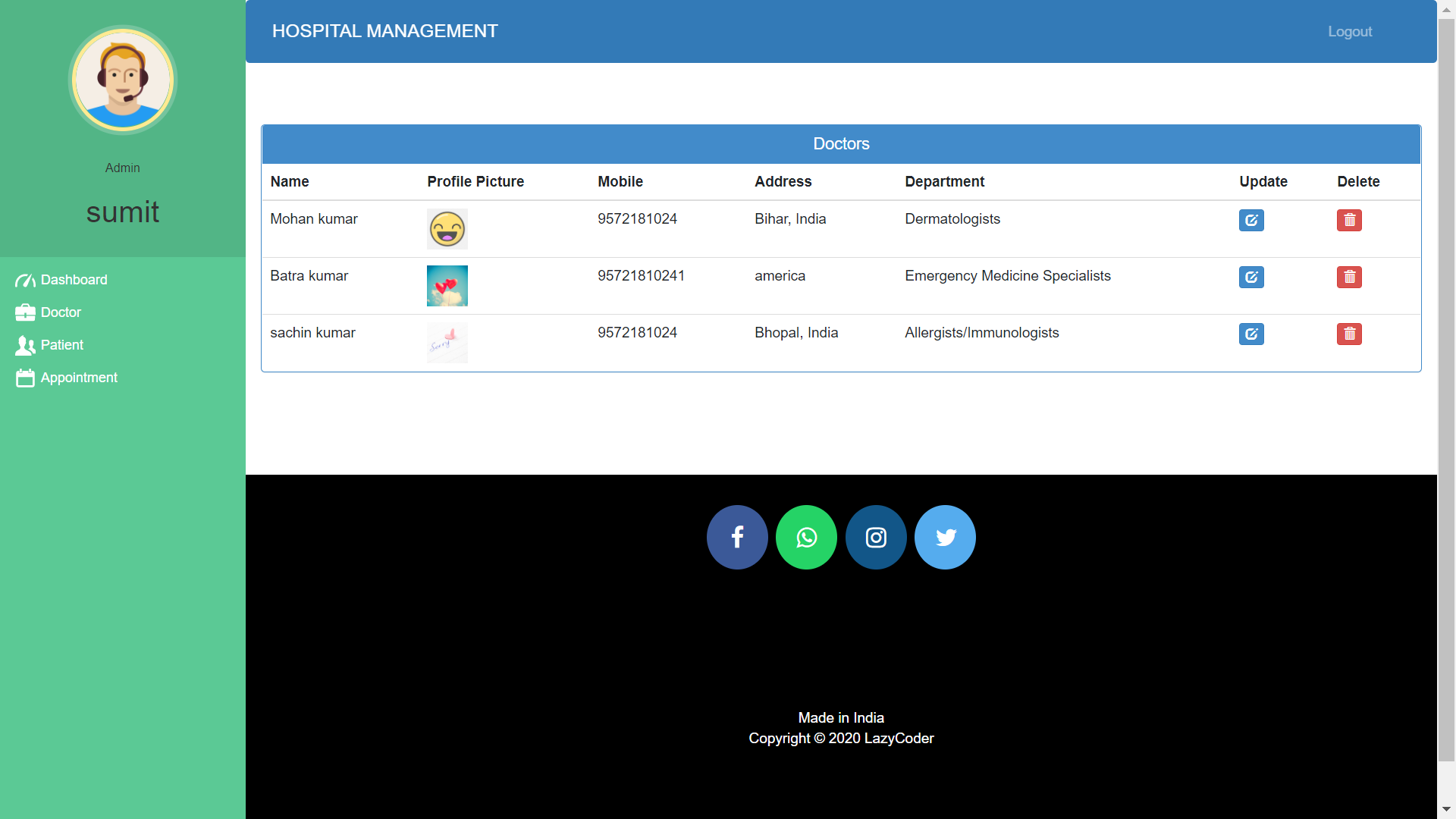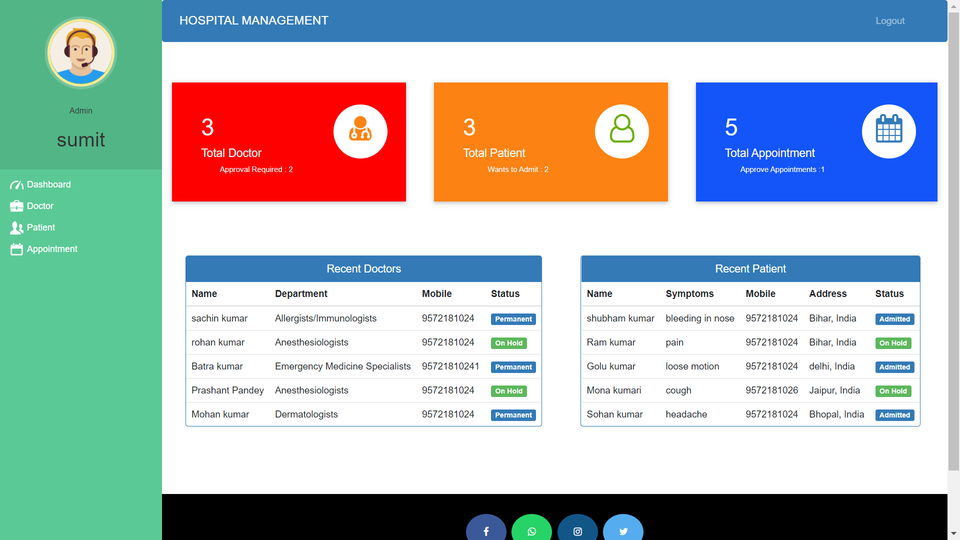Open Source Free Hospital Management System for Small Hospitals
Django is a popular Python open-source full-stack web development framework. It can be used to build a solid web apps with a powerful backend structure.
It is already proven in many enterprise, medical and healthcare related projects.
Today, we bring you a quick app that is build with Django as a hospital management system, which can be used to manage medical records, appointments and more.
Features

Admin
- Signup their account. Then Login (No approval required).
- Can register/view/approve/reject/delete doctor (approve those doctor who applied for job in their hospital).
- Can admit/view/approve/reject/discharge patient (discharge patient when treatment is done).
- Can Generate/Download Invoice PDF (Generate Invoice according to medicine cost, room charge, doctor charge and other charge).
- Can view/book/approve Appointment (approve those appointments which are requested by patient).
Doctor
- Apply for job in hospital. Then Login (Approval required by hospital admin, Then only doctor can login).
- Can only view their patient details (symptoms, name, mobile ) assigned to that doctor by admin.
- Can view their discharged(by admin) patient list.
- Can view their Appointments, booked by admin.
- Can delete their Appointment, when doctor attended their appointment.
Patient
- Create account for admit in hospital. Then Login (Approval required by hospital admin, Then only patient can login).
- Can view assigned doctor's details like ( specialization, mobile, address).
- Can view their booked appointment status (pending/confirmed by admin).
- Can book appointments.(approval required by admin)
- Can view/download Invoice PDF (Only when that patient is discharged by admin).
Important Security and Drawbacks
- Anyone can be Admin. There is no Approval required for admin account. So you can disable admin signup process and use any logic like creating superuser.
- There should be at least one doctor in the hospital before admitting a patient. So first add doctor.
- On update page of doctor/patient you must have to update password.
License
The project is released as an open-source project under the MIT License.

